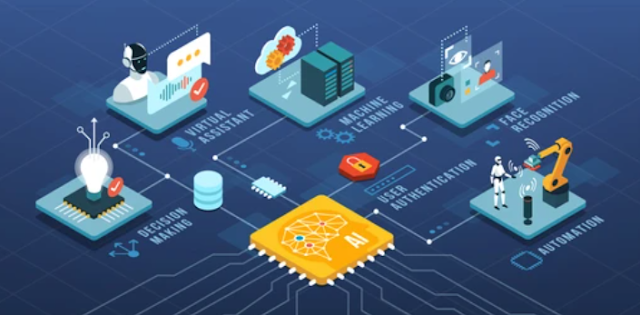Applications of Machine Learning in Real-World Scenarios
Machine Learning (ML) has a wide range of applications in various industries and sectors, revolutionizing the way we solve problems and make decisions. Here are some examples of real-world scenarios where ML is being successfully applied:
Healthcare:
- Disease Diagnosis: ML algorithms can analyze medical records, symptoms, and test results to assist in diagnosing diseases and conditions.
- Medical Imaging: ML enables the automated analysis of medical images, such as X-rays and MRI scans, for early detection of abnormalities and precise diagnoses.
- Drug Discovery: ML algorithms help in the identification of potential drug candidates, speeding up the drug discovery process.
Finance:
- Fraud Detection: ML models can identify fraudulent transactions by detecting patterns and anomalies in large volumes of financial data.
- Credit Scoring: ML algorithms analyze credit histories and other data to predict creditworthiness and assess the risk associated with lending.
- Algorithmic Trading: ML techniques are used to develop trading strategies by analyzing market data and predicting stock price movements.
E-commerce and Recommendation Systems:
- Personalized Recommendations: ML algorithms analyze user behavior and preferences to provide personalized product recommendations.
- Demand Forecasting: ML models help in predicting demand for products, optimizing inventory management, and improving supply chain efficiency.
- Customer Segmentation: ML algorithms cluster customers based on their behavior and characteristics, enabling targeted marketing campaigns.
Autonomous Vehicles:
- Object Detection and Recognition: ML algorithms enable vehicles to detect and recognize objects such as pedestrians, other vehicles, and traffic signs.
- Path Planning: ML models help autonomous vehicles plan optimal routes and make decisions based on real-time traffic and environmental conditions.
Natural Language Processing (NLP):
- Sentiment Analysis: ML techniques are used to analyze text data and determine the sentiment or opinion expressed in customer reviews, social media posts, etc.
- Language Translation: ML models are employed to translate text from one language to another with high accuracy.
- Chatbots and Virtual Assistants: ML algorithms power conversational agents that can understand and respond to user queries or provide customer support.
Manufacturing and Industrial Processes:
- Predictive Maintenance: ML algorithms analyze sensor data from machinery to predict potential failures and optimize maintenance schedules, reducing downtime.
- Quality Control: ML models can detect defects and anomalies in manufacturing processes, ensuring product quality and reducing waste.
- Supply Chain Optimization: ML techniques help optimize supply chain operations by predicting demand, optimizing inventory, and improving logistics.
These are just a few examples, and the applications of ML extend to many other domains, including cybersecurity, energy, agriculture, education, and more. ML continues to advance, opening up new possibilities for automation, optimization, and decision-making in various industries, ultimately improving efficiency, productivity, and user experiences.












